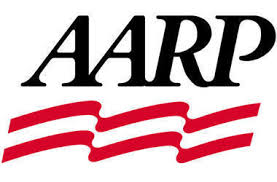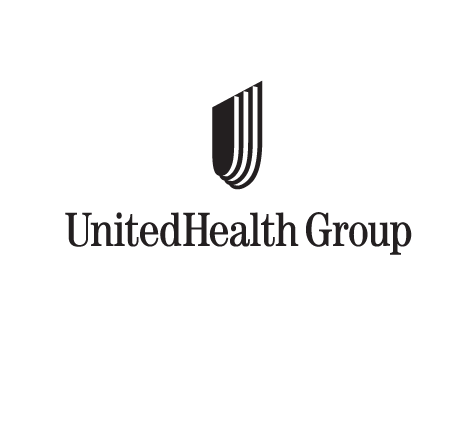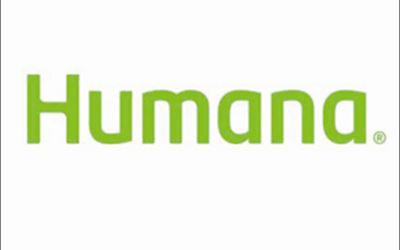If you are a watch lover who wants to have a high-quality replica watch but don't want to spend too much money,
www.watchesreplica.to will be your best choice.
As someone who is reviewing Medicare plan options either for yourself or for a loved one, I can almost a guarantee that you have heard of the AARP brand before, if you are not already deeply familiar with the organization. AARP is a consumer organization whose goal is to help seniors of every walk of life. They are not actually an insurance company. If you are interested in health insurance, the AARP branded medical insurance plans are actually underwritten by Aetna insurance company. In the case of Medicare supplements and/or Medicare advantage policies, they are underwritten by United HealthCare insurance company. The AARP Medicare complete plan is a type of Medicare advantage policy, and not a Medicare supplement. Medicare advantage also goes by the name of Part C, which is a combination of traditional Medicare benefits and a private insurance policy merged together to provide an all-in-one plan for seniors. Depending on where you live, this Medicare advantage policy might be branded as Secure Horizons instead of AARP, something you should be aware of in case you think they are totally different companies. This happens to be a very popular Medicare advantage plans option for seniors this year because the premiums are starting at zero dollars. Even if this policy does not charge you a monthly plan premium, you’re still responsible for paying your Part B premium to traditional Medicare. A number of other factors are making this a very successful plan for this enrollment period. First of all, there is no medical plan deductible that needs to be satisfied before services are covered. Secondly, you can use in and... read more
The providers listed below offer consistently high rated Medicare Advantage plans. CMS developed these 2014 Medicare Advantage Ratings in advance of the annual enrollment period. Each of the evaluated plans are rated and then scored on a 5 star scale. These plans receive a high performing score as a result of there performance on the Overall Part C measures. There was no change in the number of Medicare Advantage plans receiving five star rating in 2014. Plans ranking in the four or higher categories have increased from 26% in 2013 to 35% in 2014 The CMS main focus on evaluating each of these plans is based on five domains: Outcome: measures focus on improvements to a beneficiary’s health as a result of the care that is provided. Intermediate outcomes: Intermediate outcome help move patients closer to the “outcome” as defined above. Controlling Blood Pressure is an example of an intermediate outcome where the outcome would be better health status for beneficiaries with hypertension. Patient experience: Patient experience measures represent beneficiaries’ perspectives about the care they have received. Access: Access measures reflect issues that may create barriers to receiving needed care. Plan Makes Timely Decisions about Appeals is an example of an access measure. Process: Process measures the method by which health care is provided. Provider Name Plan Name State Rating Kaiser Permanente Kaiser Permanente Advantage Inland Empire California Group Health Cooperative Group Health Coop Clear Care Basic Washington Gundersen Health Plan, Inc. Gundersen Senior Preferred WI,IA Cigna-HealthSpring Cigna-Courage Advantage (HMO) Florida Providence Health Plans Providence Medicare OR, WA Medical Associates Health Plan Medical Associates Basic Plan (Cost) Iowa Dean... read more
Medicare recipients who want to enroll or change their Medicare health care and Part-D coverage for 2014 will be able to this week from Oct. 15 to Dec. 7. Beginning the 15th seniors can now change any type of Medicare coverage you choose but changes don’t take effect Jan. 1. But now is the best time to review your needs. Reviewing your options earlier rather than later will provide you a better position if you need to make changes. If you are already enrolled your plan will provide you information about plan changes each fall for the new year. You should review your needs and compare next year’s plan for a possible change in your monthly deductibles, premiums and co-payments. Medicare Supplement providers can also change your prescription drugs coverage by changing tiers or dropped medications from the list of drugs ( formulary). Seniors should check that your plan will continue to offer equivalent medication coverage on your medications and will continue to work with your pharmacy. If you are displeased with your plan or upcoming changes, you can make changes to your coverage during this open enrollment. If you are pleased with your current Medicare plan, consider looking at other or new Medicare choices in your area that may exceed your individual needs for the new year. Questions to Ask. Have you changed the medications you take? Are your medications still covered on your current plan in 2014? Have you been diagnosed with a new medical diseases or conditions? Has your health care provider situation has changed? Are your plan premiums, co-pays or deductibles increasing? Have you moved... read more
The Care Improvement Plus program was founded in 1977 by UnitedHealthCare. They offer health care to millions of residents on Medicare and Medicaid. The Medicare part pays for the medical, hospital, healthcare services and prescription medications. This is for people that are aged 65 and up or for particular disabled conditions. Medicaid is for helping individuals that have a low income. Being a CMS contractor, they must provide services for the requirements of their clients. They are a quality improvement organization and operate as a non profit business. Care Improvement Plus has a reputation for being a unique Medicare Advantage special needs plan. This is to help with special benefits for beneficiaries using Medicare that have special conditions like heart failure or diabetes. The plan for UHC is to continue including additional offerings for people with full Medicaid and or a Low income subsidy. There is also a plan that works with just Medicare alone. They also have a pharmacy provider and prescription medication network. The plan years always begin on January 1st. In order to qualify for the program, you must have the required Medicare Parts A and B. The hours to contact them by telephone are 8am to 8pm 7 days a week. The states that Care Improvement Plus serves are: • Arkansas • Georgia • Indiana • Illinois • Iowa • Maryland • Missouri • New Mexico • New York • South Carolina • Wisconsin • Texas Members of Care Improvement Plus has a special needs plan for those that are chronically ill, and qualify for this plan. The qualifications of this plan are: • Diabetes • End- stage renal disease • Chronic obstructive cardio... read more
In addition to offering individual and family health insurance plans, Health Insurance carriers also sell private health insurance plans to seniors and those eligible for Medicare. These products are called Medicare Advantage, Medigap or Medicare Supplemental Insurance, and Medicare Part D prescription drug cards. If you are looking at a company that is offering one of these products, keep in mind they are contracted with Medicare to offer this kind of insurance policy to you. In the case of Medicare Advantage or Part C of Medicare and Part D drug plans, the insurance provider receives a subsidy for Medicare for these kinds of plans in exchange for providing services to their insured members. As a Medicare beneficiary if you would like to lower your out-of-pocket costs for medical and prescription drug related expenses, you should consider supplementing original Medicare with a supplement and a drug plan. Since these kinds of Medicare supplemental insurance plans are sold to private for-profit insurance carriers, you will want to compare Medigap plans being offered to you side-by-side so that you can make an educated decision about which plan is best for you. Below we have listed some top rated Medicare health insurance plans. The NCQA (National Committee for Quality Assurance) along with US News created a ranking of the top Medicare supplement health plans available in the US. The plans are ranked according to best customer satisfaction, claims handling, medical treatment, communication, disease prevention, and quality of specialists. Top 10 Medicare Health Plans for Seniors Kaiser Foundation Health Plan of Colorado (Rank 89.0) Fallon Community Health Plan (Rank 88.8) Geisinger Health Plan (Rank 88.1) Tufts Associated (Rank 88.0)... read more
Many individuals and families are living without health insurance in America, which has led to the popularity of Medicaid and Medicare. When it comes to Medicaid vs Medicare, some people looking for health care assistance fail to realize the difference between the two programs. Although both programs are federally funded, they are typically available to two separate groups of people. Medicaid is a state-run health insurance program available to eligible low-income people, seniors, people with specific disabilities and families with dependent children. The specific eligibility requirements for Medicaid vary per state, but the general requirements are based on financial need. The specific services offered under the Medicaid program are also determined at the state level. The federal government has established a list of services that all states must offer to Medicaid recipients. Some of the mandatory services offered under the Medicaid program include inpatient and outpatient hospital care, physician and midwife services, prenatal services, pediatric care, x-rays and laboratory testing and vaccines for kids. Optional services offered in some states include chiropractic, dental, private duty and physical therapy services. Understanding the Four Parts of Medicare Medicare is a health insurance program funded by the federal government that is available to people over age 65, younger individuals with certain disabilities and individuals diagnosed with End-Stage Renal Disease. Medicare has four parts – Part A, Part B, Part C and Part D. Each part has its own features. Most individuals meeting eligibility requirements receive Part A at no cost. Those who do not qualify for free coverage can purchase Part A. Individuals electing to receive the other three Medicare parts must pay a... read more
Life insurance is a contract between you the policy holder and the insurance contractor. This is an agreement whereby the insurance policy holder agrees to pay a specific life insurance rate, and in return, in the event of his death, the policy’s premium would be paid out to his beneficiary(s). Why You Need it? Life insurance is an investment in your family’s future and the most secure way to ensure their financial security in the event of your death. If you die, your family will lose your income and be forced to pay the monthly expenses out of a much smaller pool of money. Life insurance can help cover some or all of this lost income, plus the costs of the funeral, depending on the policy that you choose. Types of Life Insurance There are two general types of life insurance to choose from; temporary and permanent, each of which has subcategories with differing policy features. Temporary – Temporary life insurance, also known as term life insurance, is a life insurance policy where the policyholder pays a specified premium in return for a guaranteed payout if he dies during that time. Depending on the policy, once the time period is up, there may be the opportunity to renew. Permanent – This is life insurance that remains in place until the policy matures or the policy holder cancels the coverage. The only way the insurer can discontinue its insurance coverage to you is if there is evidence of fraud on your life insurance application. Permanent life insurance holders can usually have early access to their benefits in the cash value by... read more
Health insurance in the United States is predominantly privatized, with almost 60% of Americans getting their insurance through a private health insurance company. The remaining Americans are either going uninsured or using public health insurance programs. Not everyone who can’t afford sufficient private health insurance will qualify for public health insurance; in fact, most won’t. This means that the majority of Americans are under-insured or not insured at all. Below is a more in-depth look into how both the private and public health insurance systems work. Private Health Insurance Health insurance in the United States is, for the most part, owned and operated by private companies. While there are many types of private health insurance plans, they can all be grouped into 3 larger categories: Fee-For-Service (Traditional Private Health Insurance); Health Maintenance Organizations (HMOs); Preferred Provider Organizations (PPOs). Fee-For-Service is private health insurance that requires you to pay monthly premiums to your insurance company, which will cover most of your health costs. You will then be required to pay extra for certain services. Health Maintenance Organizations (HMOs) are prepaid health plans. You pay monthly premiums, but unlike fee-for-service you must receive your health care directly from their facilities. You can get an HMO Insurance Quote here. Preferred Provider Organizations (PPOs) are health insurance where you pay a monthly premium, along with a small co payment when you visit the doctor. This type of plan limits the doctors and medical facilities you can use. Public Health Insurance Publicly funded health insurance is available to senior citizens and low-income individuals and families, if they meet certain requirements. The primary vehicles for... read more
Humana is one of the biggest health insurance providers in the country providing one of the largest health care networks. Nearly 10 million people are enrolled in Humana in America including 5 million Medicare policy holders. Humana offers a wide range of additions to Medicare so you can find a plan that fits your lifestyle, your coverage needs, and your pocketbook. Humana is “A” rated by A.M Best and has been in business for over 50 years. Humana offers there types of coverage for Medicare beneficiaries Medicare Supplements, Medicare Advantage plans as well as Medicare Part D prescription drug plans. Humana offers health insurance services in all 50 U.S. states, D.C., and Puerto Rico. Humana Medicare Supplement Since all Medicare supplement plans are standardized, which means every plan generally offers the same coverages across the board. What you want to do is check if Humana has a competitive rates for the Medigap plan you find most favorable. Also double check the prior two years renewal rate increase history for Humana in your area. Remember that Humana Medicare supplements do not have any network restrictions (except Medicare Select Plans or Choice Plans). With Humana you don’t have to worry about if your doctor accepts the plan or if it’s good in another state when you travel. Humana offers Medicare Supplemental plans A, B, C, G, K, L, N and a high deductible version of Plan F. Humana Medicare Advantage When shopping for a Humana Medicare Advantage plan keep this tip in mind. Like Part D drug plans Medicare Advantage plans pricing and availability is based on which county you live... read more
AARP Medicare Supplement insurance (also called Medigap) is meant to help people with some health care costs that Medicare Part A and Part B do not cover, such as deductibles, co-payment and coinsurance; it also covers further services, such as health care, when one takes a trip outside the United States. AARP (American Association of Retired Persons) is a nonprofit organization that assists people aged 50 and more with enhancing their lives’ quality, by promoting adequate and reasonably priced medical care. It is the largest organization for people over 50 in the United States and has agencies in all states. What is Medicare? Medicare is the medical insurance for people aged 65 and over, for people under 65 with particular disabilities and for all those with ESRD (End-Stage Renal Disease). Each part of Medicare covers certain services: – Part A – hospital insurance – Part B – medical insurance – Part D – medical prescription drug coverage What is AARP Medicare Supplement and what does it Cover? Medigap is private health insurance that supplements the “gaps” in Medicare Part A and Part B. When you have both Medigap and Original Medicare, each will pay its share for covered medical treatment costs. Every such supplement policy follows state and Federal laws designed to protect the insured party and, no matter where you buy it from, it provides the same basic benefits. However, not all types of the AARP Medicare Supplement insurance policies may be available in every state. What you must know when you buy the AARP Medicare Supplement. – You must have both Part A and B Medicare. – You can... read more
Site Search:
MedicareHelp.org is a privately-owned Non-governmental agency. The government website can be found at HealthCare.gov.
Please contact Medicare.gov, 1-800-MEDICARE, or your local State Health Insurance Program (SHIP) to get information on all of your options. Enrollment depends on the plan’s contract renewal.
Every year, Medicare evaluates plans based on a 5-star rating system.










